Chapel (https://chapel-lang.org) is a portable, open-source programming language for parallel programming from the desktop to large-scale supercomputers. Use this tag to ask questions about the Chapel language or its implementation that are likely to be of use to a broad audience. To make user-specific bug reports or feature requests, please use Chapel's Github issues page instead (https://github.com/chapel-lang/chapel/issues).
Chapel, the Cascade High Productivity Language, is a parallel programming language, developed by Cray Inc.
chapel Characteristics :
productive: . . . . code tends to be similarly readable/writable as Python
scalable: . . . . . . runs on laptops, clusters, the cloud, and HPC systems
fast: . . . . . . . . . . performance competes with or beats C/C++ & MPI & OpenMP
portable: . . . . . . compiles and runs in virtually any *nix environment
open-source: . . hosted on GitHub, permissively licensed
How Does Chapel Boost Productivity?
Chapel improves the programmability of parallel computers by providing a higher level of expression than current programming languages do, and by improving the separation between algorithmic expression and data structure implementation details. Chapel provides a global namespace, permitting tasks running on one compute node to refer directly to variables stored in the memories of remote compute nodes. It also supports a general and dynamic model of parallelism in which new tasks can be created, locally or remotely, at any point during a program's execution.
Interactive Supercomputing for Data Science in Chapel on HPC ?
Whereas the culture of HPC tends to eschew interactivity in favor of compiled programs and batch jobs, thanks to Dr. Reus and his colleagues from U.S. DoD, there is a bridge - Arkouda - a Python library for interactive data science that supports familiar NumPy and Pandas routines that are implemented in Chapel to run fast and scalably from the desktop to thousands of compute nodes or processor cores.
Mastering Chapel :
For easy experimentation with the Chapel language, there is an on-line programming and code-execution ecosystem supported by Attempt This Online, so one need not wait for a new HPE Cray supercomputer to be delivered or to install it themselves, before experimenting with the language.
Chapel supports a multi-threaded parallel programming model at a high level, by supporting abstractions for data parallelism, task parallelism, and nested parallelism. It enables optimizations for the locality of data and computation in the program via abstractions for data distribution and data-driven placement of subcomputations. It allows for code reuse and generality through object-oriented concepts and generic programming features. For instance, Chapel allows for the declaration of locales and allows to use explicit syntax-constructors to direct the parts of the computations to take place on respective locale instances.
Tools for Parallel HPC Code Execution Performance Tuning :
Chapel language environment also delivers tools for exploring and monitoring the run-time state performance factors of the distributed computing process, which is being executed over multi-node physical computing infrastructure.
While Chapel borrows concepts from many preceding languages, its parallel concepts are most closely based on ideas from High Performance Fortran (HPF), ZPL, and the Cray MTA's extensions to Fortran and C. Language specification and documentation is being maintained here.
Chapel is being developed as an open source project hosted on GitHub, under the Apache license.
The recent Annual 2020 CHIUW Conference announcements show both productivity and performance boosts from using Chapel in scientific and other HPC tasks.
 Having boosted even further above the Universal Parallel C [UPC] in optimised code for larger computing fabrics, as was demonstrated in Nikhil Padmanabhan's talk - getting the performance beyond
Having boosted even further above the Universal Parallel C [UPC] in optimised code for larger computing fabrics, as was demonstrated in Nikhil Padmanabhan's talk - getting the performance beyond 9.7 [Top/s] on 512-locale x 36-cores system
The recent Annual 2019 CHIUW Conference slides showing Chapel achievements, performance advantages over MPI-code, current state of Chapel-on-GPU/NUMA-computing and also the outlook for 2018-2021
Previous CHIUW Conferences on HPC use-cases where chapel shown its powers, productivity and excellence
